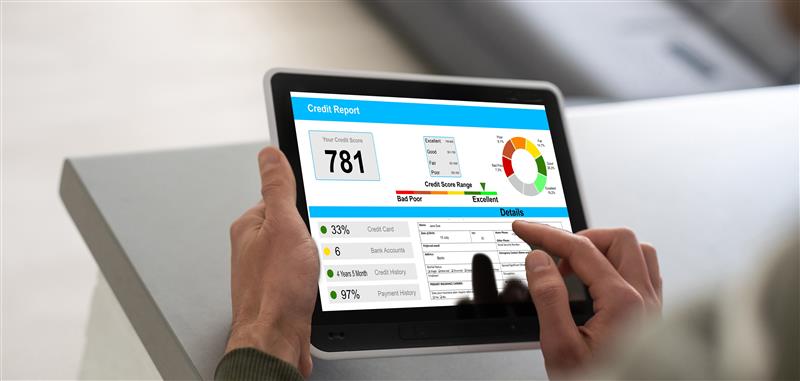
Your credit score isn’t just a number; it’s a key that unlocks a world of financial opportunities. Whether you’re a seasoned professional, a devoted parent or part of a dynamic duo, taking charge of your credit health is essential.
Before embarking on this journey, comprehend the fundamentals. Your credit score reflects your financial habits. Dive into your credit report – it’s your financial report card. Platforms like CIBIL provide free credit reports annually. Analyse it, understand it and identify areas for improvement.
Credit reports will point out the loans/credit cards which are characterised by defaults or delayed payments and any negative information regarding delays which you can correct by approaching the bank or CIBIL. Visit www.CIBIL.com to identify such misinformation and correct it within 30 days.

build a system that offers it first. Explore our wellbeing programs →

As a parent juggling multiple responsibilities or a young couple exploring life together, staying organised is key. Set up automatic payments for bills to ensure you never miss a due date. Timely payments contribute significantly to your credit score, showcasing your reliability.
Struggling with EMIs? Approach your bank to help you restructure that debt to make it easier to pay. Avoid coming too close to your credit card limit. Ensure you’re not paying only the minimum amount due on your card but the amount in full.
As a salaried employee handling various financial responsibility, aim to maintain a credit utilisation ratio below 30%. Spread your expenses across multiple cards if needed but avoid maxing out any single card. Don’t cross 50% of your credit card limit.
Much like life, financial diversity is crucial. Blend different types of credit—credit cards, loans and even a mix of secured and unsecured debts. A diverse portfolio exhibits your ability to manage various financial responsibilities.
Banks tend to see too many unsecured loans as a negative and might be inclined towards declining your loans. Have a mixed bag of credit, i.e., Unsecured (personal loans) and secured loans (car/home).


Improving your credit score is a marathon, not a sprint. Small, consistent steps yield significant results over time. Embrace the journey, celebrate milestones and remain committed to financial well-being.
Before you go, we’ll leave you with a question that you might be pondering over:
Life is dynamic, and circumstances change. If you foresee challenges in meeting payments, communicate with your creditors. Many lenders are willing to work out modified payment plans rather than risk defaults.
Improving your credit score is a marathon, not a sprint. Small, consistent steps yield significant results over time. Embrace the journey, celebrate milestones and remain committed to financial well-being.
Before you go, we’ll leave you with a question that you might be pondering over:
What’s the ideal credit score?
A credit score for any individual lies between 300 and 900. A score above 700 is considered good, anything below is not preferred by the banks.


Talk to our team
As a salaried employee handling various financial responsibility, aim to maintain a credit utilisation ratio below 30%. Spread your expenses across multiple cards if needed but avoid maxing out any single card. Don’t cross 50% of your credit card limit.
Much like life, financial diversity is crucial. Blend different types of credit—credit cards, loans and even a mix of secured and unsecured debts. A diverse portfolio exhibits your ability to manage various financial responsibilities.
Banks tend to see too many unsecured loans as a negative and might be inclined towards declining your loans. Have a mixed bag of credit, i.e., Unsecured (personal loans) and secured loans (car/home).

As a salaried employee handling various financial responsibility, aim to maintain a credit utilisation ratio below 30%. Spread your expenses across multiple cards if needed but avoid maxing out any single card. Don’t cross 50% of your credit card limit.
Much like life, financial diversity is crucial. Blend different types of credit—credit cards, loans and even a mix of secured and unsecured debts. A diverse portfolio exhibits your ability to manage various financial responsibilities.
Banks tend to see too many unsecured loans as a negative and might be inclined towards declining your loans. Have a mixed bag of credit, i.e., Unsecured (personal loans) and secured loans (car/home).

As a salaried employee handling various financial responsibility, aim to maintain a credit utilisation ratio below 30%. Spread your expenses across multiple cards if needed but avoid maxing out any single card. Don’t cross 50% of your credit card limit.
Much like life, financial diversity is crucial. Blend different types of credit—credit cards, loans and even a mix of secured and unsecured debts. A diverse portfolio exhibits your ability to manage various financial responsibilities.
Banks tend to see too many unsecured loans as a negative and might be inclined towards declining your loans. Have a mixed bag of credit, i.e., Unsecured (personal loans) and secured loans (car/home).

© 2025 Happizest, a division of Happiest Health. All rights reserved. | Privacy Policy | Disclamier